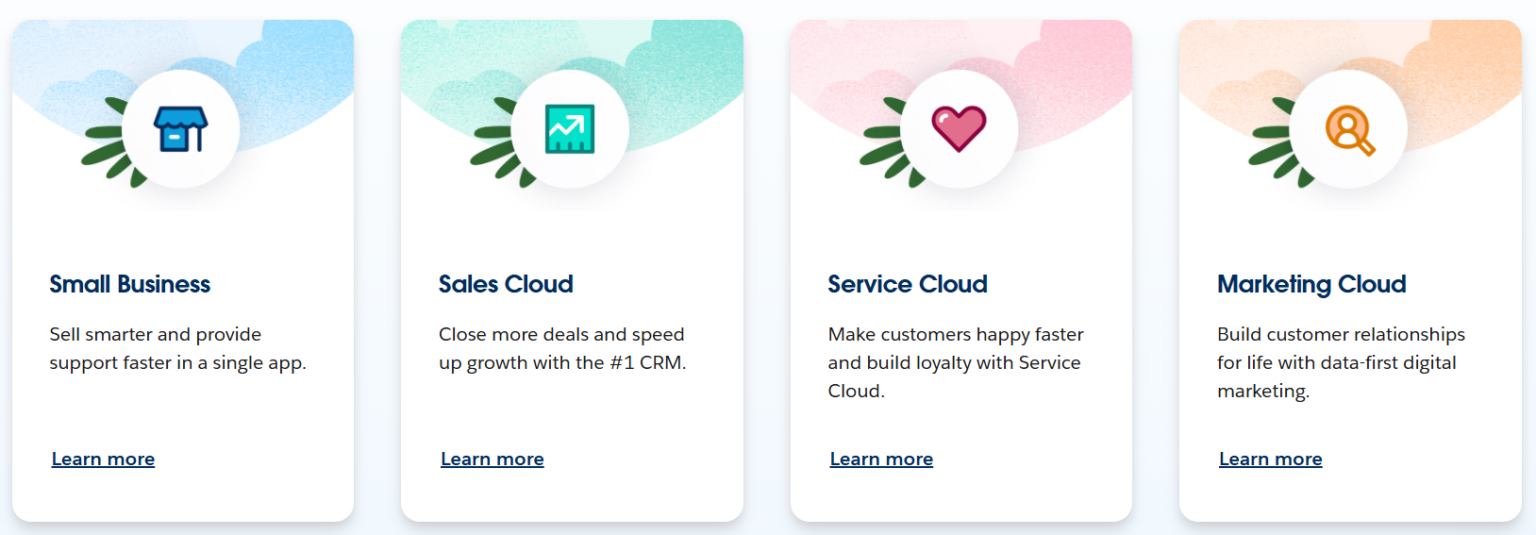Salesforce Review 2025: The Good, The Bad & The Costly

In the modern business world, success isn’t just about selling—it’s about building lasting customer relationships. A single lost lead or a missed follow-up can mean the difference between closing a deal and losing out to the competition. That’s why businesses rely on powerful customer relationship management (CRM) software to stay ahead. Enter Salesforce. If you’ve ever explored CRM solutions, you’ve likely come across this industry giant. But is it the right fit for your business?
In this in-depth review, I’ll break down Salesforce’s features, pricing, pros and cons, and how it compares to competitors. Let’s dive in.
Overview of Salesforce
But with great power comes complexity. Salesforce’s vast capabilities can be overwhelming, especially for newcomers. It requires time, training, and sometimes even dedicated administrators to unlock its full potential. While its scalability is a major advantage, smaller businesses may find themselves paying for features they don’t need or struggling with a steep learning curve.
Yet, for those willing to invest the time and resources, Salesforce offers unparalleled benefits. Its cloud-based infrastructure means businesses can access critical customer data from anywhere, fostering collaboration and efficiency. The platform’s automation capabilities help streamline workflows, reduce manual tasks, and ensure no lead falls through the cracks.
Another key strength of Salesforce is its thriving community. With a vast network of developers, consultants, and users, businesses have access to countless resources, training materials, and support. The Salesforce AppExchange further enhances the platform, allowing companies to extend its functionality with thousands of third-party apps.
Despite its dominance, Salesforce isn’t without competition. Many businesses wonder whether they truly need such a comprehensive system or if a simpler, more affordable alternative might suffice. Others may question whether the ongoing costs—subscription fees, implementation, and maintenance—justify the investment.
Ultimately, choosing Salesforce comes down to your business’s needs, budget, and willingness to embrace a platform that, when used effectively, can be a game-changer in customer relationship management.
Key Features of Salesforce

While Salesforce provides an impressive range of features, it can also be overwhelming, especially for businesses that don’t have the time or resources to fully utilize it. In this article, we’ll explore Salesforce’s key components, strengths, and challenges to help you determine whether it’s the right fit for your business.
The Core Components of Salesforce
1. Sales Cloud
If you’re looking to boost sales, Sales Cloud is where it’s at. It helps sales teams manage leads, track customer interactions, automate workflows, and close deals faster. The AI-powered Einstein Analytics feature provides predictive insights, helping sales reps focus on high-value opportunities. By automating tedious sales processes, businesses can improve efficiency and focus more on building customer relationships.
2. Service Cloud
Customer service is more than just answering calls—it’s about building relationships. Service Cloud equips businesses with tools to handle customer inquiries, automate responses, and provide omnichannel support through email, chat, social media, and even phone. With AI-powered chatbots and a knowledge base, businesses can resolve customer issues more efficiently, ensuring a better overall experience.
3. Marketing Cloud
Salesforce’s Marketing Cloud is a dream for marketers. It allows businesses to run targeted campaigns, personalize customer interactions, and measure marketing performance. Whether it’s email marketing, social media management, or customer segmentation, Marketing Cloud ensures that businesses engage with customers in the most effective way possible.
4. AppExchange
Think of AppExchange as the Salesforce app store. With thousands of third-party integrations, businesses can extend Salesforce’s functionality to fit their needs. From accounting and project management tools to AI-powered analytics, AppExchange ensures that Salesforce works seamlessly with your other business applications.
5. AI and Automation (Einstein Analytics)
Salesforce has gone all-in on AI, and it shows. Einstein Analytics helps businesses uncover patterns, predict trends, and automate repetitive tasks. Whether it’s lead scoring, forecasting, or customer sentiment analysis, AI-powered insights make decision-making smarter and faster.
6. Customization and Scalability
One of Salesforce’s biggest strengths is its ability to adapt to businesses of all sizes. Small startups can use its basic features, while large enterprises can create highly customized workflows, automate processes, and integrate with other enterprise applications.
7. Agentforce (New AI-Powered Feature)
Salesforce recently introduced Agentforce, an AI-driven platform designed to automate tasks and provide real-time business insights. While still evolving, it promises to revolutionize how businesses interact with customers and manage workflows.
Salesforce Pricing

Salesforce’s pricing isn’t one-size-fits-all. Each product—whether it’s Sales Cloud, Service Cloud, or Marketing Cloud—has its own pricing structure, which varies based on the number of users, features, and level of support included.
For small businesses, entry-level plans provide basic CRM functionality at a more affordable price. These plans typically include essential tools for managing leads, tracking customer interactions, and automating workflows. While they may lack advanced AI-driven insights and automation, they are a great starting point for businesses that need a reliable CRM without breaking the bank.
For mid-sized and enterprise-level companies, higher-tier plans offer a more comprehensive suite of features. These include AI-powered analytics, advanced automation, multi-channel support, and premium customer service options. These plans are designed for organizations that require scalability, deep customization, and integration with other business tools.
Salesforce pricing ranges widely—from $25 per user/month for basic plans to over $15,000 per user/month for enterprise-level solutions. The total cost depends on several factors, including the edition you choose, the number of users, and any additional customizations or integrations.
While some businesses find the investment worthwhile due to Salesforce’s extensive capabilities, others may find it too expensive compared to simpler CRM alternatives. It’s essential to evaluate whether Salesforce aligns with your budget and business goals before committing to a plan. Businesses with straightforward CRM needs may be better off choosing a more cost-effective solution, while those seeking robust, scalable CRM capabilities may find Salesforce’s pricing justified.
Pros and Cons of Salesforce
Pros
- Feature-Rich Platform
- Highly Customizable
- Strong Ecosystem and AppExchange
- AI and Automation
- Scalability
Cons
- Expensive for Small Businesses
- Steep Learning Curve
- Customization Can Be Complex
- Occasional Performance Issues
- Reliance on Internet Connectivity
Like any software, Salesforce has its strengths and weaknesses. While it’s widely regarded as one of the most powerful CRM solutions available, it may not be the right fit for every business. Here’s a closer look at its pros and cons to help you decide if it’s the right choice for you.
Pros of Salesforce
✅ Feature-Rich Platform – One of Salesforce’s biggest advantages is its comprehensive suite of tools. It covers everything from sales, customer service, and marketing to automation, analytics, and AI-powered insights. Businesses don’t just get a CRM—they get an entire ecosystem designed to improve efficiency and customer relationships.
✅ Highly Customizable – Unlike many other CRMs that offer rigid solutions, Salesforce allows businesses to tailor the platform to their specific needs. Whether it’s through custom workflows, automation, dashboards, or integrations, companies can create a system that aligns perfectly with their operations.
✅ Strong Ecosystem and AppExchange – Salesforce’s AppExchange marketplace provides access to thousands of third-party applications. Whether you need accounting software, project management tools, or advanced AI analytics, Salesforce integrates seamlessly with most major business applications.
✅ AI and Automation (Einstein Analytics & Agentforce) – With AI-powered insights, Salesforce helps businesses make smarter decisions. Features like Einstein Analytics and Agentforce automate tasks, predict customer behavior, and optimize workflows—saving businesses time and improving efficiency.
✅ Scalability – Whether you’re a small startup or a Fortune 500 company, Salesforce grows with your business. Its flexible architecture allows companies to start small and expand as needed, making it a solid long-term investment.
Cons of Salesforce
❌ Expensive for Small Businesses – While Salesforce offers powerful features, it comes at a high cost. Subscription fees can be expensive, especially for small businesses or startups. Some companies may find that simpler, more affordable CRM solutions are a better fit.
❌ Steep Learning Curve – With great power comes complexity. Salesforce’s extensive functionality means that new users often require training to navigate the system effectively. Businesses may need to invest time (or hire specialists) to fully utilize the platform.
❌ Customization Can Be Complex – While customization is a major advantage, it can also become a double-edged sword. Over-customization can make workflows overly complicated, leading to inefficiencies and potential integration challenges.
❌ Occasional Performance Issues – Some users report that Salesforce can slow down when handling large datasets or during peak usage times. Performance hiccups may affect productivity, particularly for data-heavy businesses.
❌ Reliance on Internet Connectivity – Since Salesforce is cloud-based, an internet outage can disrupt access to critical data and workflows. Businesses with unreliable internet connections may find this a potential risk.
Salesforce vs. Competitors

Salesforce is one of the most powerful CRM platforms available, but how does it compare to other major players like HubSpot, Zoho CRM, and Microsoft Dynamics? Here’s a quick breakdown:
Salesforce vs. HubSpot
✅ HubSpot is easier to use and has a more beginner-friendly interface.
✅ It’s also more budget-friendly, with a free plan and lower-cost options.
❌ However, HubSpot lacks the depth and advanced customization that Salesforce provides. It’s better suited for small businesses that need a simple, easy-to-implement CRM rather than a highly scalable enterprise solution.
Salesforce vs. Zoho CRM
✅ Zoho CRM is a great low-cost alternative, making it an attractive option for startups and small businesses.
✅ It includes automation and AI features at a fraction of Salesforce’s price.
❌ However, Zoho CRM doesn’t scale as well for large enterprises, and its ecosystem isn’t as extensive as Salesforce’s AppExchange.
Salesforce vs. Microsoft Dynamics
✅ Microsoft Dynamics integrates seamlessly with other Microsoft products, making it an excellent choice for businesses already using tools like Outlook, Teams, and Azure.
❌ However, it can be more complex to set up and requires a steeper learning curve than Salesforce.
Which One Should You Choose?
If you need a powerful, scalable CRM with deep customization, Salesforce is the best option. But if budget, ease of use, or Microsoft integration are your top priorities, HubSpot, Zoho, or Microsoft Dynamics might be better suited to your business needs.
Final Verdict: Is Salesforce Worth It?
So, should you invest in Salesforce? The answer depends on your business needs. If you’re looking for an all-in-one CRM that can grow with your business, automate workflows, and provide deep customer insights, then Salesforce is an excellent choice. However, if you’re a small business looking for a simple and cost-effective solution, it may feel like overkill.
Salesforce remains the industry leader for a reason—it’s powerful, flexible, and packed with features that can transform the way businesses interact with customers. Just be prepared for the learning curve and the investment required to get the most out of it.
At the end of the day, if you’re serious about scaling your business and improving customer relationships, Salesforce is a top-tier option that’s hard to beat. And one more thing, if you’re new to CRM systems, check out our CRM guide to understand how they work and why businesses need them.
